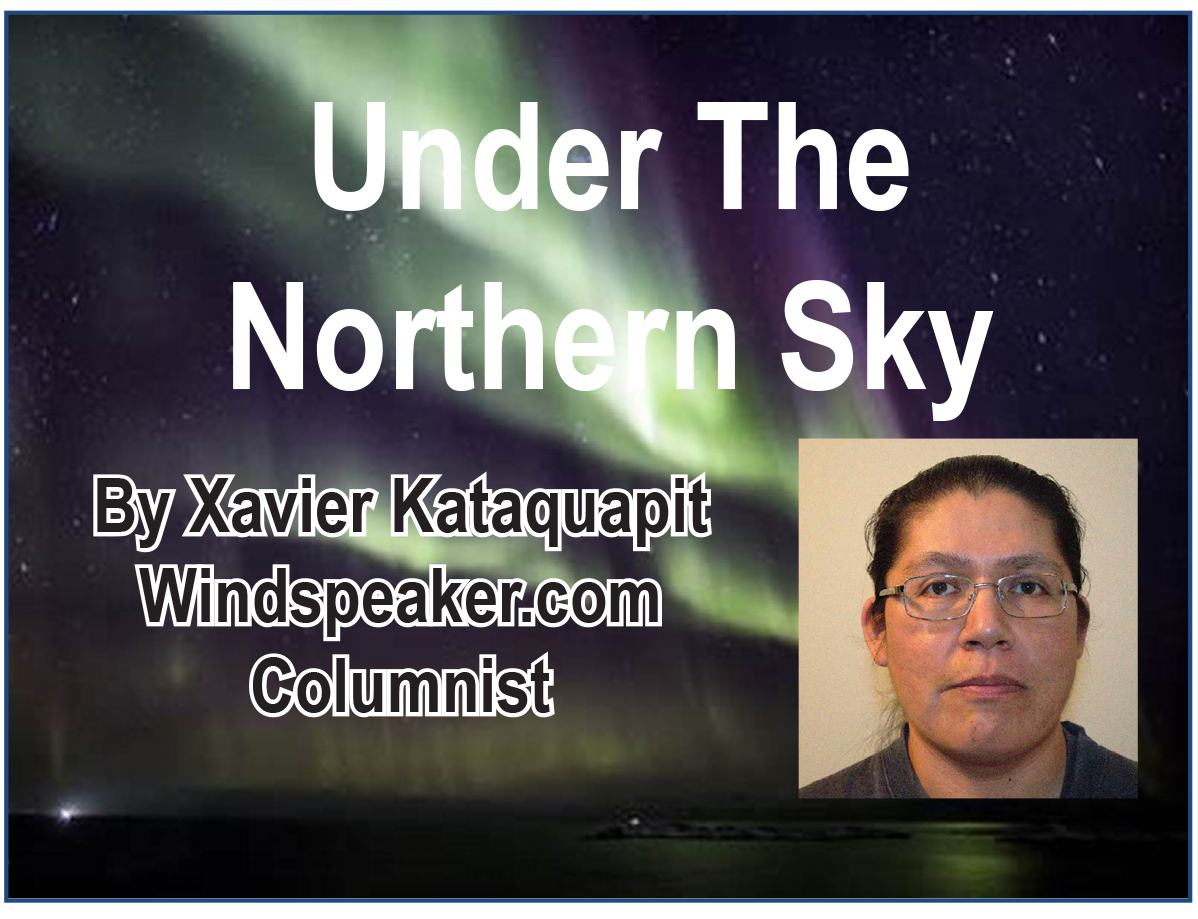
By Xavier Kataquapit
I have never really been that political and I don’t think most Indigenous people are. We come from a very natural history in terms of living, communicating and working with others. Our introduction to the European way of doing things, commercialism, capitalism, ownership of land and resources, religion and how the foreigners saw reality was very different from what we knew and practised.
When my people here in Canada were colonized and entered into treaties with the federal government, we were more than a little naive about the goals and desires of our new neighbours. These treaties were made to take away our way of life and free movement on our ancestral lands.
Most if not all of these treaties were broken by the government over the decades and watered down. We ended up with small tracks of reserve land and our ability to hunt, fish and gather to sustain our families was hindered. We were for the most part overlooked by all of the resource companies that took billions of dollars in precious metals and timber off of our traditional lands.
Thankfully a lot has changed over the past few decades as we are now being included in resource development on our traditional lands, we are revisiting our treaties, we are dealing with land claims and the country is moving into a time with less racism.
A recent example of these troubled treaties has to do with the lobster fishery issue in Nova Scotia. The problem has to do with the fact that the government was vague in honouring the 1999 Supreme Court Marshall decision which allowed Indigenous people to harvest lobster as a means to obtain a moderate income. In comparison to the commercial fishery, the First Nation operations harvest a small faction of the entire fishery industry. The federal government has not had successful negotiations with the Indigenous fishery and the commercial interests to establish a fair and more level playing field.
Another example is the conflict in Caledonia referred to as ‘The Grand River Land Dispute’ between the Six Nations of the Grand River (Six Nations) and the government of Canada. This conflict is based on treaties that awarded large tracts of land to Six Nations along the length of the Grand River. Land was granted to Six Nations who were allies to the British during the American Revolutionary War. Over the decades the majority of this territory was sold off leaving the First Nation with just a small portion of land. New development is earmarked on the disputed traditional lands of the Six Nations which is the cause of recent protests and conflict.
The fact is that at some point soon the federal government has to negotiate this land claim and the disputes of Indigenous fishermen so that treaties, court decisions and Indigenous rights can be made clear and provide positive outcomes for everyone involved. Until that happens there will be conflict.
The protests and conflicts are just the tip of an historic iceberg that stretches for a hundred or more years into Canadian history. Much of this history has benefited Canada but has been less than positive for Indigenous people. Go onto the Aboriginal People’s Television Network News website at www.aptnnews.ca to learn about the history and background of these issues from the perspective of Indigenous journalists and advocates.
One thing for sure is that when conflicts and issues like this arise, the far right racists and bigots arrive on the scene with a lot of nasty talk and threats. Hate is the key to supporting fascist, far right ideas and movements. What we need now is clarity and meaningful negotiations that right many wrongs done in the past to Indigenous people and then we can move on in a positive way.
We all have to take time to learn about these issues rather than just decide that hate and intolerance is a good way to proceed. These are issues that stretch back 200 and 300 years ago and sometimes more. It has only been in recent decades that First Nation people have been able to bring to light what we have lost over the centuries.
So before you react negatively to the images of a protest, a barricade, or lobster fishermen advocating for themselves, please take a moment and do a little research to understand why people feel a need to rise up. First Nations have lived under treaties for hundreds of years, we followed the laws and regulations imposed on us, we have watched as our lives were changed against our will and now we are fighting for the few remaining rights and the small parcels of land we have left.
If this were your history, wouldn’t you do the same?
